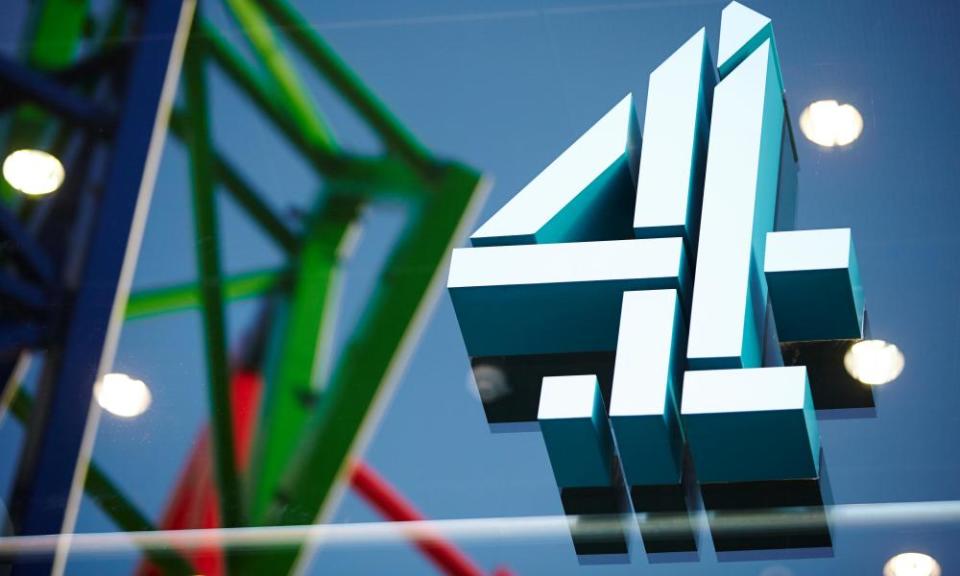Ministers veto reappointment of two women to Channel 4 board

The government has vetoed the reappointment of two women to Channel 4’s board of directors, including one of only two women of colour, in a sign ministers are continuing to assert their authority over senior media appointments.
The decision not to renew the boardroom positions of Uzma Hasan and Fru Hazlitt at the state-owned but privately funded broadcaster was made against the advice of both the Channel 4 board and the media regulator, Ofcom.
Both women were recommended for another three-year term on the broadcaster’s board, sources told the Guardian, with such reappointments usually waved through by the government. However, ministers have instead decided to seek new candidates, as part of a wider push that has led to the appointment of Conservative allies to leading media roles.
Last year, the Tory donor Richard Sharp was appointed chairman of the BBC, while Ofcom is recruiting a new chair, with the former Daily Mail editor Paul Dacre and the former Tory minister Ed Vaizey in the running.
A spokesperson for the culture secretary, Oliver Dowden, confirmed that the two women would not be reappointed.
They said: “Last year, the culture secretary reviewed a number of proposed reappointments to the Channel 4 board and, following the due process, decided the moment was right to bring in new people and expertise. He thanks the outgoing board members for their hard work. The recruitment process for the roles is ongoing and no decisions have been made.”
A third Channel 4 board member whose term in office was due to end, the former Paralympic swimmer and Conservative peer Chris Holmes, had his time extended to ensure representation of people with disabilities on the board. Of the eight remaining non-executive board members, seven are white men despite the fact that part of the broadcaster’s remit is to improve diversity in the media.
Although Downing Street has no formal role in the appointments process, sources suggested the decision was influenced by officials working in No 10. The government is increasingly blocking reappointments to public sector roles to bring in new individuals to organisations.
The intervention is also set to renew the debate over a possible privatisation of Channel 4, which has been a favoured proposal of the broadcasting minister, John Whittingdale, for many years. The Guardian understands the reason given for the surprise decision not to renew the two women’s terms in office was the need to fill a “finance” skills gap on the board of directors.
Hasan is producer and co-founder of Little House Productions, which “focuses on bringing subversive stories to global audiences”. At 41, she is also younger than the average board member. Hazlitt runs a social media company and is a former managing director at ITV, Yahoo and GCap Media, the commercial radio group. Neither woman was available to comment.
The government has previously intervened in the appointments process at Channel 4. At the end of 2016, the then culture secretary, Karen Bradley, initially blocked Althea Efunshile’s appointment to the Channel 4 board and appointed four white men instead. Again, the decision came despite Efunshile being recommended by Ofcom, which is nominally in charge of finding, vetting and appointing Channel 4’s board members.
After the government was embarrassed by the ensuing furore, Efunshile was eventually appointed the following year.
Since then, the Black Lives Matter protest movement has helped highlight the lack of ethnic diversity in the British media and managerial levels and helped to prompt a controversial government report into racism in the UK.
Yet Downing Street has insisted on reviewing all directorships as they come up for renewal.
Non-executives typically serve for two terms unless there has been an upset of some kind, which is why the government’s decision to block the reappointment of Hasan and Hazlitt has come as such a surprise.
Channel 4 declined to comment. A spokesperson said: “Channel 4 board appointments are a matter for Ofcom.”
In October, Dowden said the issue of privatisation had to be “on the table” as part of a government review of public service broadcasting.
Although Channel 4’s finances looked shaky at the start of the coronavirus pandemic, the broadcaster has enjoyed improved viewing figures with commercial and artistic hits including It’s a Sin, Grayson’s Art Club, Gogglebox and Bake Off.

 Yahoo Finance
Yahoo Finance 